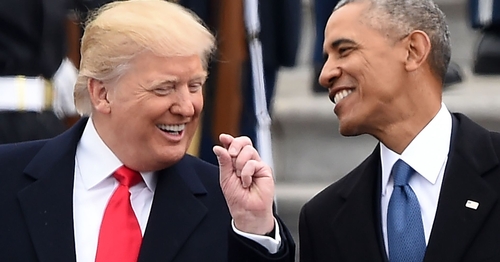Caratteri Liberi: President Trump announced in April 2018 his intention to withdraw American troops from Syria, but then nothing happened; top administration figures even indicated the troops would remain. On Dec. 19, Trump suddenly announced their departure. How do you explain Trump's decision?
Daniel Pipes: As a result of intuition and instinct. Trump has gone very far on the basis of these qualities, so he trusts them more than polls or experts. To an unusual degree he engages in solitary and impulsive decision making.
CI: Is there a political rationale behind Trump's decision, for example, to appease his "Make America Great Again" supporters who want a U.S. retreat from the outside world?
DP: I don't think so. Rather, his isolationist temperament resists being embroiled (to quote Neville Chamberlain in 1938, referring to the Czechoslovak crisis) in "a quarrel in a faraway country between people of whom we know nothing." Or, in Trump's own words: "We are spread out all over the world. We are in countries most people haven't even heard about. Frankly, it's ridiculous."
 Trump, like Neville Chamberlain, cares little about "countries most people haven't even heard about." |
CI: National Security Adviser John Bolton said in September about Syria, "We're not going to leave as long as Iranian troops are outside Iranian borders and that includes Iranian proxies and militias." Do you expect him to be the next one in queue to resign?
DP: I do not; Bolton sees himself achieving many key goals working for Trump; if that means having to endure capriciousness and inconsistency, Bolton will do so.
CI: Efraim Inbar notes that both the Obama and Trump administrations have significantly retreated from the Middle East and sees the weakened American military posture reflected in the U.S. Sixth Fleet no longer having a permanent aircraft carrier in the Mediterranean. Is this accurate?
DP: Yes, between Obama's leftist dislike of American power and Trump's isolationist outlook, U.S. military power has much declined from where it was ten years ago.
 Trump and Obama agree on one thing, to reduce American influence in the Middle East. |
CI: Does leaving Syria in the hands of Russia, Iran, and Turkey serve U.S. interests?
DP: To ask that question is to answer it.
CI: Reports suggest that in a Dec. 14 phone call with, Turkey's President Erdoğan questioned the need for a prolonged U.S. deployment in Syria, telling Trump that he can easily handle the ISIS threat; Trump, eager to withdraw American troops from Syria, accepted his offer. Is this credible?
DP: Very credible, especially when one factors in Trump's strange attraction to dictators.
 Trump and Erdoğan have not always been so friendly as at present. |
CI: What does the decision to withdraw American troops mean for the Kurds of Syria?
DP: The presence of even a single American soldier meant that the Turkish government dared not attack a Kurdish-controlled region. With U.S. troops gone, the Turks can now move in – unless Putin tells them not to, preferring that the Iranians move in. Whichever state it is, the Kurdish-controlled areas appear doomed.
CI: What does the U.S. troop withdrawal mean for Israel?
DP: Not that much. Eastern Syria is quite far from Israel. Some combination of Syrian, Turkish, and Iranian control over it will not greatly affect the Jewish state.
CI: But Yossi Kuperwasser, former head of the IDF's Research Division, sees the U.S. withdrawal giving Assad and the Iranians full control over Syria, easing the delivery of weapons from Iran through Iraq to Syria and Lebanon, and "there's not going to be anything in between to stop them."
DP: True, Iranian access to Syria and Lebanon will be slightly facilitated, but Tehran has not had any trouble reaching either country over the past forty years, since its alliance with the Assad regime began in 1979.
CI: What sort of American strategy would you like to see deployed in the Middle East, specifically in Syria?
DP: The U.S. government should: (1) Stand with its allies and against its enemies –and be aware of which is which – something sadly not the case now, for example, with regard to Turkey and Qatar. (2) Recognize Islamism as the most dangerous totalitarian ideology in the world today. (3) Work with dictators as necessary but put constant pressure on them to open up to political participation.
